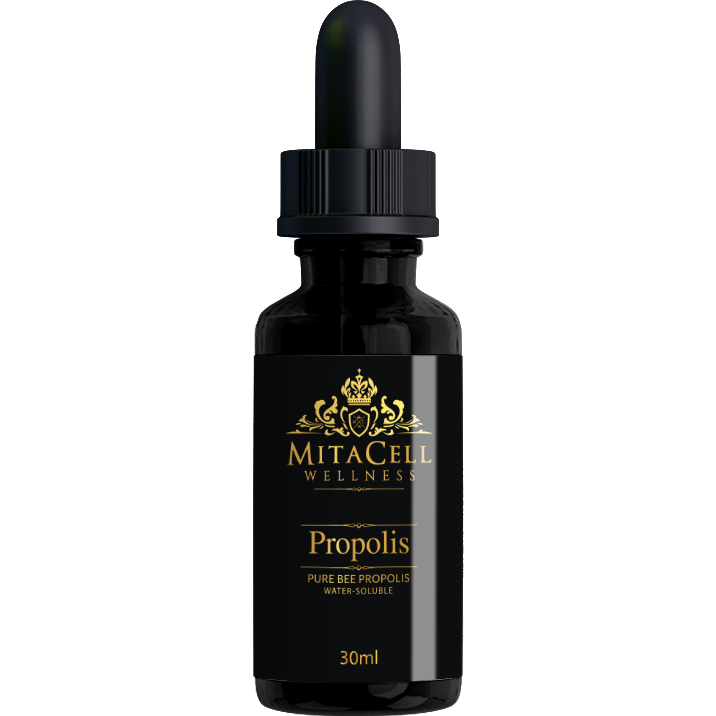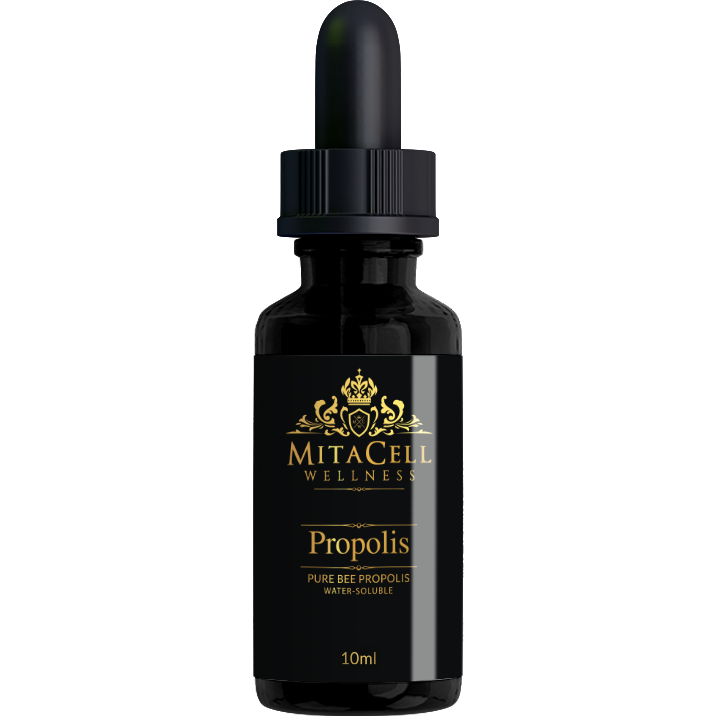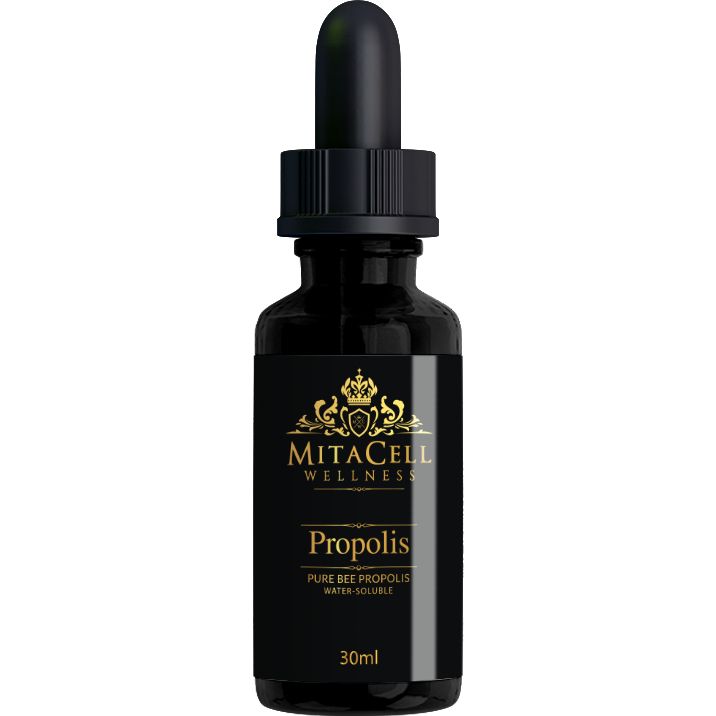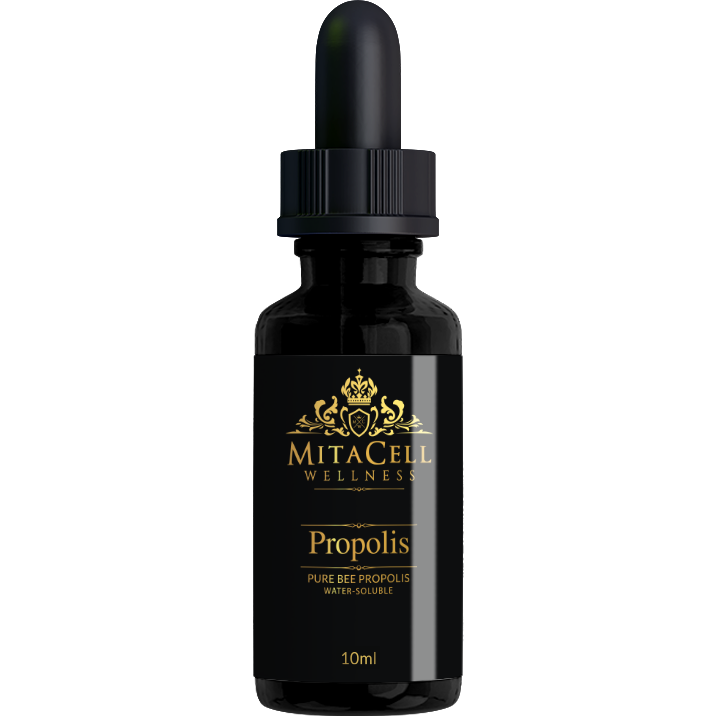About Propolis
Propolis is a natural resinous substance collected by honeybees from buds and trees. Propolis contains tree resin, essential oils, waxes and bioflavonoids. Bees coat the entire inside surface of their hives with propolis, polishing it to create one of the most sterile environments known to nature. The sticky filler substance plays a vital role in both protecting the colony from invasion from outside as well as the spread of infection within.
Raw propolis is composed of 50% -70% resins and balsams, 30% -50% wax, 5% -10% pollen and 10% essential oils. Propolis has a wide variety of additional elements including organic and amino acids, vitamins, minerals and most importantly bioflavonoids. The antioxidant effects of bioflavonoids in propolis may help to maintain a healthy immune system.
What Is propolis?
Propolis contains 300 natural compounds of active substances, amongst them flavonoids, phenolic acid, aromatic acids and numerous trace elements which make this a unique substance found in nature. In recent years scientific research has focused on Propolis and highlighted its significant importance for human wellbeing , which makes it is naturally unique.




